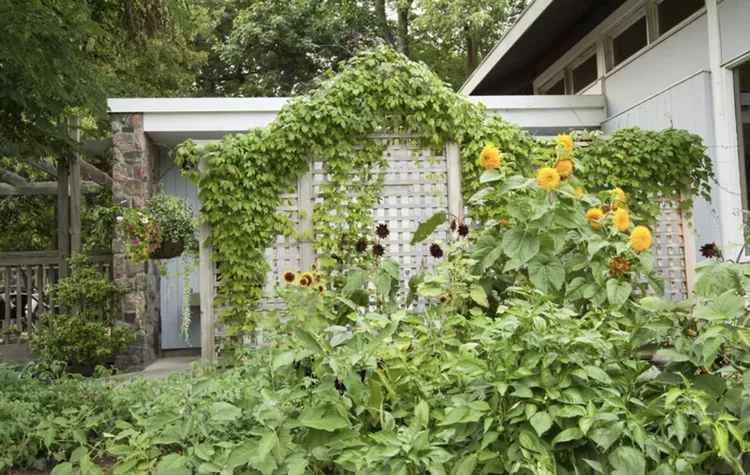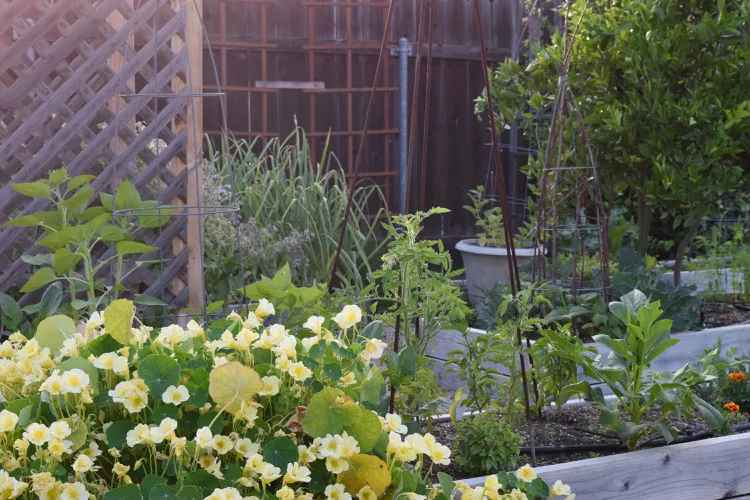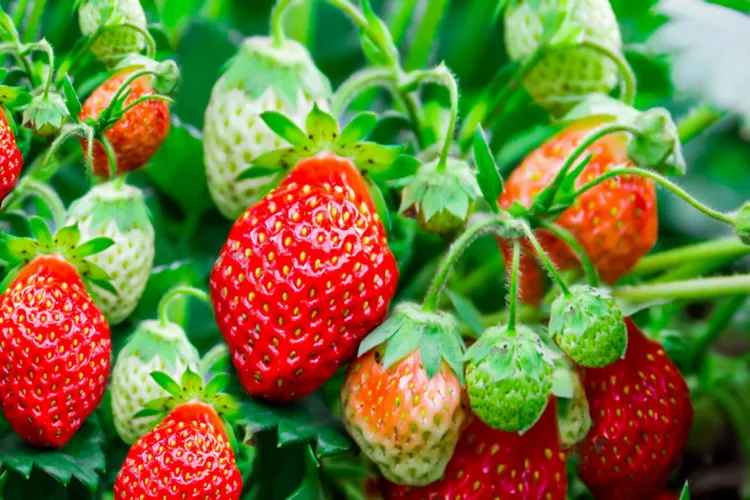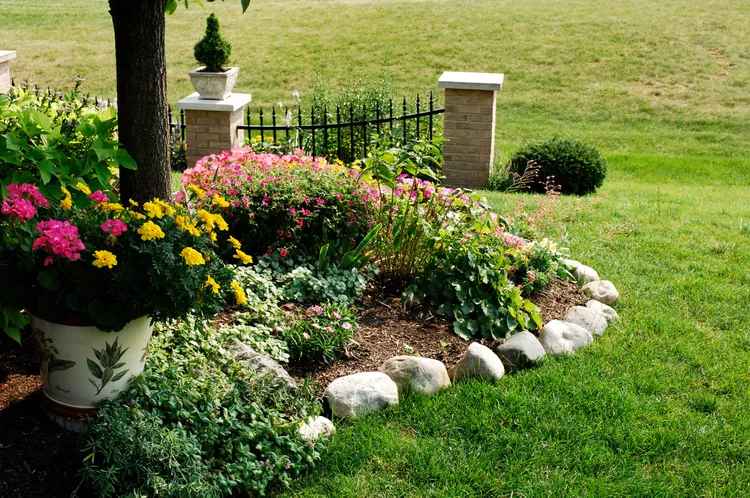Growing food without synthetic pesticides and fertilizers is not organic gardening. It’s a holistic, comprehensive approach to gardening that supports and maintains a healthy ecosystem, including biodiversity, in your yard and beyond.
Here are some steps to help you garden organically, whether you’re a new gardener or you want to switch from conventional methods of gardening using pesticides and fertilisers to organic gardening.
Why start gardening organically?
Organic gardening has many benefits. You avoid pesticides when you eat organically grown fruits and vegetables. Synthetic pesticides with a broad spectrum kill all insects (both harmful and beneficial) in your garden. This can have a significant impact on biodiversity and local food webs.
Synthetic fertilizers have much higher concentrations of nitrogen and phosphorus than organic fertilizer. This can lead to runoff of nitrogen and phosphorus, which can contaminate natural water sources. It also leads to an overgrowth of algal growth in water bodies.
Organic gardening allows crops to grow naturally using alternative pest control and fertilization methods without the same risk as non-organic methods.
Digging out an overgrown patch
Getting Your Organic Garden Started
Modify the soil
The soil is the foundation. It needs to be amended organically before crop planting. If a farm is seeking USDA Organic certification, it can only add plant and animal matter to the soil over a three-year period. This includes raw animal manure and composted plant, animal, and plant materials.
You are not bound by these rules, nor is the length of time that you must wait. It also depends on the previous use of this area. You need to wait more if the area was a heavily-treated farm field or lawn that had been treated regularly with synthetic chemicals.
Select Easy Crops
Start with the easiest crops when selecting your first organic gardening season. Avoid crops like cauliflower and broccoli that are susceptible to diseases or pests. You can always plant them later once you’ve learned how to get rid of the pests in your garden organically.
Vegetable garden
Prepare Your Supplies
You can also use organic pesticides and row covers to protect your plants.
Follow Golden Gardening Rules
Test your soil before you start. You can learn more about the composition of your soil by sending a sample to the local university extension. This will reveal the pH and nutrients in your soil. The report of a soil test will give you recommendations on how to amend the soil so that it meets your garden’s nutritional requirements. You can then determine whether you need to organically amend your soil before the growing period begins.
To prevent pests and disease, you must follow crop rotation rules. Companion planting is a good way to learn about the relationships between plants.
Attract Pollinators
Plant pollinator plants in time to bloom with other plants, like zucchini, pumpkins, cucumbers and squash, that need pollination. This will attract bees.
Bees on zucchini flower
Take Care of Your Garden
To keep your plants healthy, make sure to water, weed and fertilize them regularly. Install drip irrigation so that you don’t splash soil or water onto the plants, which could lead to diseases.
Conventional and Organic Seeds
Organic seeds are usually more expensive than conventional seed, although many companies sell both. Organic seeds have two benefits: they are produced under stricter rules for the use agricultural chemicals. By purchasing organic seeds you will indirectly contribute to efforts to preserve native habitats, local ecosystems and waterways. Organic seeds are designed to produce the best results in organic gardens, both in terms of disease resistance and yield.
Fertilizers that are organic
You can find a wide variety of organic fertilizers, from blood meal to fish emulsion. The crops you grow will determine which commercial fertilizer to use, when and how much. Organic Materials Review Institute, an international non-profit organization, publishes an annual list for organic production. Select products from the list, or look for the “OMRI Listed Label” on the bag or bottle.
Pest Control Organic Alternatives
The same rules apply to organic gardening as they do for conventional gardening. Using pesticides, whether organic or conventional should be the last option. Second, you should never use a pesticide unless you understand what you’re fighting. Pesticides should not be used indiscriminately.
Although they are organic, diatomaceous and neem oils are powerful pesticides and should be treated with the same caution. Beneficial insects, such as leafcutter bumble bees, can cause cosmetic damage to plants. This does not require any treatment. Even if a pesticide is organic, it may still kill or harm beneficial insects. Use organic pesticides according to label directions.
Tip
There are many organic pest control methods available once you’ve identified the pest. Choose products according to their OMRI listing, just like you would for fertilizer.
Carrot in vegetable garden
Composting Options for Organic Materials
Composting is a vital part of organic gardening. Two things are important to remember. You can add organic matter by using mature compost, but its unpredictable nutrient composition means you shouldn’t rely solely on it for fertilization. You still need an organic fertilizer that has a stable NPK ratio, as well as other micronutrients your plants may be lacking.
Consider what you put in your compost bin. It’s not necessary to only use organic scraps. Chemicals used on conventionally grown produce will break down in the composting process. There are still four herbicides in the compost.
WARNING
Avoid contaminating compost by not using conventional broad-leaf herbicides in your garden and on your lawn. If you must, don’t compost grass clippings. Avoid compost that comes from a composting facility as it may be contaminated.
You don’t have to limit organic gardening to edibles
A garden of organic vegetables is a good start, but being environmentally conscious and gardening sustainably should not end there. You can’t have an organic garden and a lawn that has been treated with herbicides to control weeds.
Consider replanting native grasses in your lawn. You can add more native plants in your garden, as they are not only more adapted to the local climate but also vital for insects. You can support biodiversity, a healthy local eco-system and your vegetable garden by creating a pollinator’s garden and growing milkweed to attract monarch butterflies.





